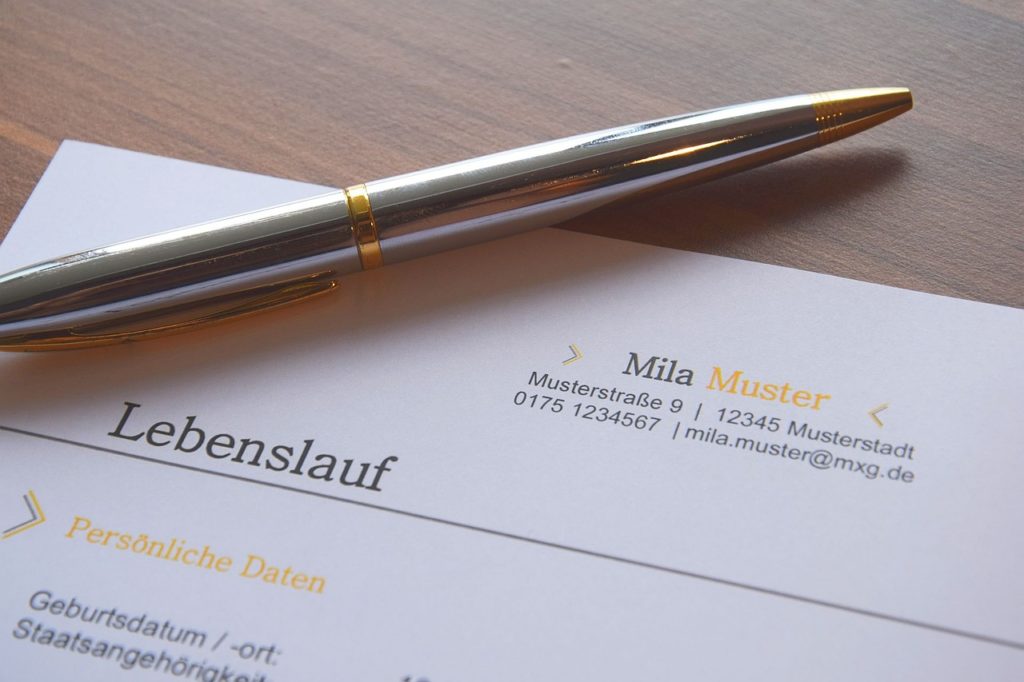It seems an impossible mission sometimes, but we can prepare a global resume that will help you find your dream job anywhere in the world. I confess that when I moved to England, I felt a bit confused when trying to “translate” my resume for the job market here.
Mainly because my professional experience was built in Brazil. So what now? How to know what is relevant or not for a job search here?
The first step was to google several templates that I could use to prepare my global resume in English. Then I talked to the friends here who not only helped me to adapt my CV, but also gave me important tips that only a local person could know.
I also had to understand that job positions are the same everywhere else on the planet, what changes is what companies expect from you. The biggest deal will still be your professional experience.
So, your CV has to differentiate from all others that have already passed through the hands of the recruiters, anyway. And this kind of rule is global.
Easy task? Not even a little. But a good online research and a little patience will help you prepare a CV that is interesting for companies when working abroad.
Have common sense, which is the most important topic of a job search in any language. Do not waste time preparing a complicated and very extensive Curriculum. Focus on what is relevant to the position you are applying for. And search for the most demanding features when looking for a job in the country you are in. There is no perfect type of curriculum to follow anyway.
Other considerations that may be relevant:
- Your CV is not an autobiography
No matter how many jobs or academic experiences you have in your career, no recruiter wants to read the autobiography of your life. One or two pages are enough to make you interesting for the role.
Some countries in Europe, for example, accept a slightly longer Curriculum. But if in doubt, always be succinct. Less is always more. Think about what is essential, but do not forget that some companies also will require some more personal information, such as your visa type, for example.
- Wherever you go: proofread it.
Remember that proofreading is essential to avoid grammar mistakes. Wherever you go, or in any language you use to write your curriculum, it is important to avoid errors. A good tip is always to ask a friend to read your CV. A second (or third) opinion will help you to brush up your writing.
- CV is not Instagram
Despite being a controversial topic, putting photos in your CV does not seem to be the best business card of a job search. But I already had to send photos (and / or copy of the passport) along with my Curriculum to some companies (from Asia and Africa) that offer online jobs such as online tutoring, for example.
Use common sense again, it’s always important to think that any search of your name on Google, will take the recruiter to all your social media. Consequently, some of your photos will be available online. Search more about the company before attaching a photo in your CV, and never ever send selfies. ;o)
- No Comic Sans, please!
It seems silly, but choosing the serif type style is important and it’s probably also the critical point when a recruiter decides whether to read your CV. Times New Roman and Arial are still most popular and secure options.
The structure of your curriculum must be light, simple and pleasant to read. So, it is very important to also choose carefully the layout of your CV. And remember the professional who will be recruiting you will also hope that you take the job process seriously. So, never, not for fun or memory lapse, go for Comic Sans, for example. Credibility is still the best business card.
- When in doubt, seek help from professionals
Many agencies help foreigners to write their global resume. These professionals can also be a fundamental tool in preparing you for a job interview, for example. But remember that you need to be totally truthful about professional experience. No more, no less. Just the truth!





